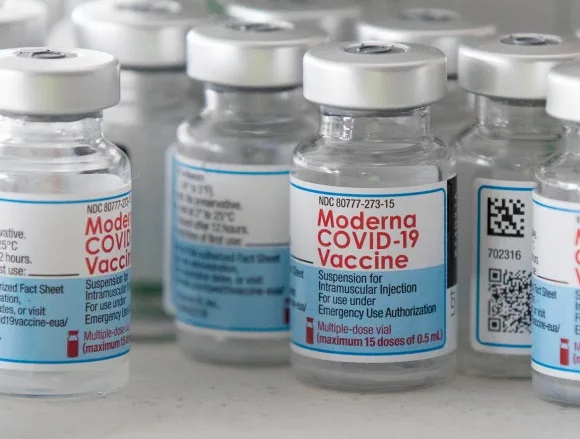Moderna is Looking to Get U.S. Authorization for its Covid-19 Vaccine Booster
Moderna asked the U.S. Food and Drug Administration (FDA) on Wednesday to allow the use of a third booster dose of the company’s Covid-19 vaccine.
The FDA is considering booster shots of the Pfizer and BioNTech vaccine, but currently has only allowed people with weakened immune systems to receive third doses of either the Moderna or Pfizer shots.
The FDA has said that a group of its advisers will meet to discuss Pfizer’s booster shot application on Sept. 17. It has not been made clear if they would also discuss Moderna’s vaccine booster then.
Moderna has said it submitted initial data for the use of a 50-microgram booster dose of its two-shot vaccine. The company’s original Moderna vaccine contains 100 micrograms of mRNA in each shot.
Recipients of the 50-microgram dose had robust antibody responses against the Delta variant, Moderna Chief Executive Stéphane Bancel stated.
According to Moderna, the third dose of its vaccine generated a better immune response than observed after the second dose in its Phase III clinical trial.
The company said it expects to submit data to the European Medicines Agency and other regulatory authorities around the world soon as well.
It was recently revealed that a study (published this week in the Journal of the American Medical Association) comparing the Covid vaccines of Pfizer showed that Moderna’s produced more than twice the antibodies of Pfizer/BioNTech’s.
The trial included 2,499 Belgian health-care workers who were vaccinated with two doses of either vaccine.
“Higher antibody titers were observed in participants vaccinated with 2 doses of mRNA-1273 [the Moderna vaccine] compared with those vaccinated with BNT162b2 [the Pfizer/BioNTech] vaccine,” the JAMA article revealed.
“Previously infected participants had higher antibody titers compared with previously uninfected participants.”
Further, “Antibody levels negatively correlated with age in previously uninfected participants, being highest among those younger than 35 years,” the article said.
“Across all age categories, previously uninfected participants vaccinated with mRNA-1273 had higher antibody titers compared with those vaccinated with BNT162b2.”
“The higher mRNA content in mRNA-1273 compared with BNT162b2 and the longer interval between priming and boosting for mRNA-12733 (four weeks versus three weeks for BNT162b2) might explain this difference,” the article also said.
Disclaimer: We have no position in any of the companies mentioned and have not been compensated for this article.


